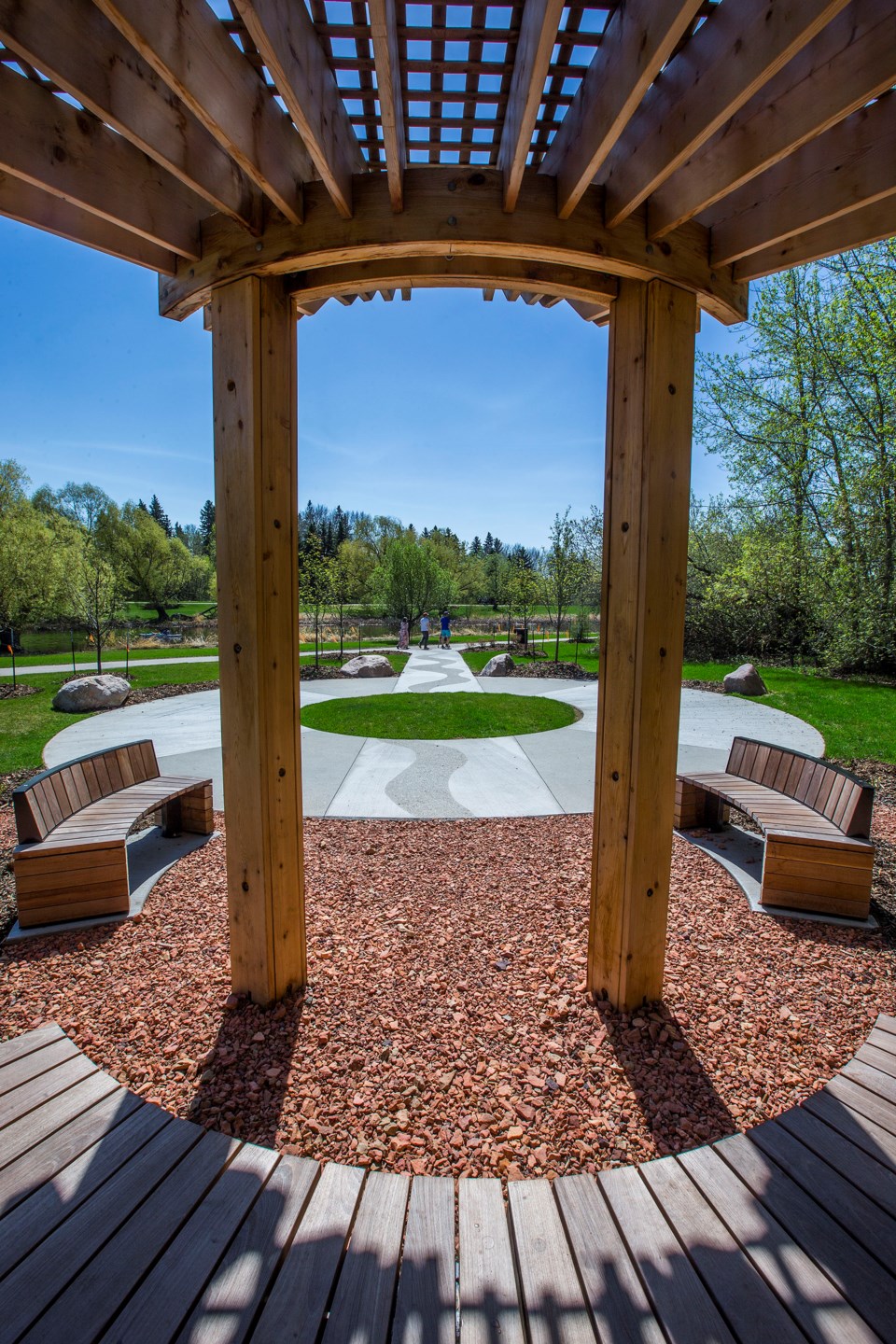The City of St. Albert is holding several events this month in an act of reconciliation.
On March 30, a panel was held at the Arden Theatre entitled “In This Together: An Honest Chat About Reconciliation Since TRC.”
Panelists Danielle Metcalfe-Chenail, Miranda Jimmy, Steven Cooper, Hazel McKennitt, Cheryl Whiskeyjack and Carissa Halton, Edmonton-area activists and community leaders, engaged in a conversation about how reconciliation has moved forward since the Truth and Reconciliation Commission five years ago.
McKennitt, the Aboriginal Liaison for Edmonton Public Schools and a residential school survivor, spoke of her experience educating young people about the realities of life as an Indigenous woman.
She noted how many young people are mistakenly under the impression that residential schools are part of Canada’s far distant history. Youville Indian Residential School was located on Mission Hill in St. Albert and was in operation from 1892 until 1948. The last residential school in Alberta closed just 23 years ago in 1996.
McKennitt spoke about the school board's resistance to her stories in the past, as they claimed it might traumatize children. “I was a child. I was traumatized,” she responded.
Whiskeyjack, executive director of the Bent Arrow Traditional Healing Society, spoke about the disconnect between Indigenous tradition and modern reality. “We have a community of people who are thousands of years from this land that we’re on right now and they don’t feel connected to it. They feel displaced, even though they live here. So public engagement is a way to re-engage the folks that we serve.”
The city has taken steps toward reconciliation in recent years with the opening of a healing garden. One of the first of its kind in Canada, the garden acknowledges survivors of residential schools and provides a place for truth and reconciliation.
Steven Cooper is a member of the Baxter National Class Action consortium negotiation committee that helped negotiate a $5-billion national residential school settlement. He offered insight into approaching reconciliation as a white man, urging attendees to go out and educate their peers. He summed it up simply: “Reconciliation is showing up.”
St. Albert is offering its citizens many opportunities to show up. The new reconciliation tab on the city's website states, “The City is committed to restoring balance to its relationship with Indigenous peoples. Payhonin Reconciliation St. Albert is the City’s initiative to begin the journey towards reconciliation between Indigenous and non-Indigenous people in our community.”
Payhonin is the Cree word for gathering place and is a traditional Indigenous name for the valley where St. Albert is located.
The official launch event takes place today at the St. Albert curling club.




